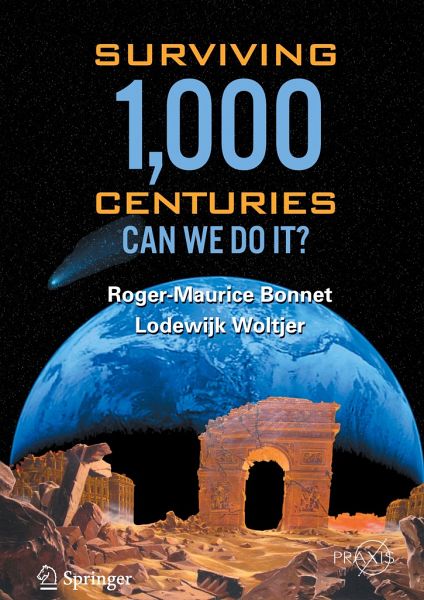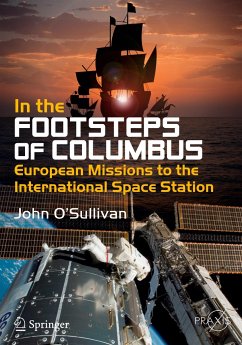
Surviving 1000 Centuries
Can We Do It?

PAYBACK Punkte
15 °P sammeln!
The circumstances that will shape the long-term future of our planet will be constrained by what is physically possible and what is not. This full color book provides a quantitative view of our civilization over the next 100,000 years, in comparison to the 40-60,000 years it took for modern humans to emerge from Africa, on the basis of contemporary scientific and technological knowledge. The evolution of the Earth's atmosphere and the origin of water are highlighted as the most important factors for the emergence and the development of life.The authors consider both cosmic and natural hazards,...
The circumstances that will shape the long-term future of our planet will be constrained by what is physically possible and what is not. This full color book provides a quantitative view of our civilization over the next 100,000 years, in comparison to the 40-60,000 years it took for modern humans to emerge from Africa, on the basis of contemporary scientific and technological knowledge. The evolution of the Earth's atmosphere and the origin of water are highlighted as the most important factors for the emergence and the development of life.
The authors consider both cosmic and natural hazards, pointing out that scientific information provided by satellites and communication systems on the ground could prevent many unnecessary casualties by forward planning and the installation of elementary precautions. The Earth's evolving climate is considered, showing how greenhouse gases have played an important role in the past climate, whereas human industrial and agricultural emissions will greatly impact our future.
The authors consider both cosmic and natural hazards, pointing out that scientific information provided by satellites and communication systems on the ground could prevent many unnecessary casualties by forward planning and the installation of elementary precautions. The Earth's evolving climate is considered, showing how greenhouse gases have played an important role in the past climate, whereas human industrial and agricultural emissions will greatly impact our future.












